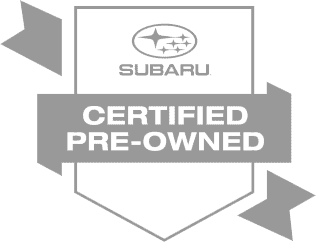Whether they are indoor or outdoor animals at home or we plan to take them in the car for travel or close destinations, the winter can be hard on our pets. Along with ongoing reminders on how to best travel with our pets, recent changes in the law here in Philadelphia have made it a priority to compel owners to keep their pets safe during the winter months.
Philadelphia recently issued a new ordinance that calls for
fines of up to $500 for dog owners who leave their animals out in the cold. This
marks the first time that the city has set specific guidelines to protect pets
from extreme weather.

Under the new law, dogs must be brought indoors anytime the
city declares a Code Blue, which is when temperatures drop to around 20 degrees
Fahrenheit. The same holds for Code Red (for extreme heat) and Code Gray (for
extreme precipitation).
The Animal Care and Control Team (ACCT) will be in charge of
enforcement. Among the ordinance’s other points are that owners must provide adequate
food and drinking water that isn't frozen by the cold weather. Non-compliance
will trigger the fine.
It is hoped that the ordinance will be called into use by
conscientious neighbors that contact the ACCT when they see a violation that is
hidden from view of city police and other municipal employees. While animals
will not be confiscated from violators that are fined, certain kinds of abuse
and neglect can violate state laws and trigger higher fines or even criminal
charges. Unfortunately, the city’s ordinance doesn't apply to felines.
The Humane Society has had an ongoing campaign in Philadelphia
and around the country to advise owners on the best way to care for their pets
in extreme heat or cold. The warnings for keeping them indoors in freezing weather
are augmented by the best methods for spotting the warning signs and dealing
with suspected frostbite on a pet.
By policy, the Humane Society recommends that owners never
travel with their pet in the car at any time of the year. In practice it is
understood by all parties that owners will and do hit the road regularly with
their pets for a variety of reasons. It is something that cannot be avoided in
terms of vet and grooming visits as well as other pet related task where they
must be in the car.
Pets and their owners that love getting into the outdoors
such as many Subaru owners are usually well versed in the best techniques and
practices for traveling with their pets in the vehicle. In fact, many Subaru
models provide standard or optional amenities to accommodate safe, clean, and
comfortable pet travel. While these conscientious and careful pet owners
understand and avoid taking them anywhere in frigid cold weather to keep them
safe, less experienced pet owners may need some instruction in what to do and
when to never take their pet out into the cold.
One of the primary concerns is that owners never leave their
pets in the car because just as hot cars are dangerous for pets in the summer;
cold cars pose a threat as well. Although cat owners keep their pets indoors
during the winter months as a general rule, even very mild or even sunny days
that outdoor cats are in the elements can bring potential dangers.
Car owners should always check the hood, under the car, and
in the wheel wells for outdoor cats during the winter months as they gravitate
to these areas to keep warm on any day or night that is not reasonably warm.
Also, pets can pick up all types of dangerous contaminates like salt,
antifreeze, or de-icers on their pads when they are outside during the winter.

That’s why the Humane Society and other pet safety advocate
organizations remind cat and dog owners to be sure to use pet safe de-icers. In
addition they call for washing off their paws after a walk or anytime they come
in contact with the ground during the winter so that they don’t lick them and
get sick.
If you must travel with your pet, this article
by the Humane Society provides some useful tips for air, plane, trains and ship
travel as well as in the car. The winter can be a wonderful time for people and
pets, but owners must take the proper precautions to guard against the elements
whether they are at home or on the road.





